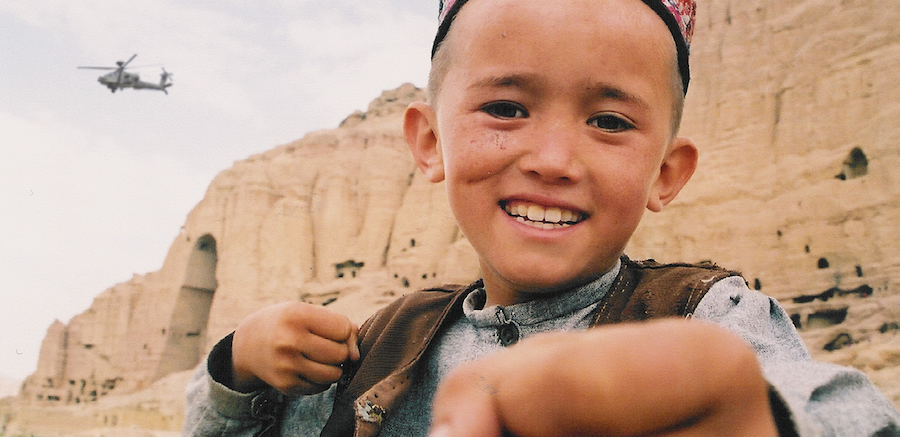The first rule of documentary filmmaking is to never get involved. To observe your subject objectively and not interfere with the events taking place on screen. This often throws up a Pandora’s Box of moral and ethical questions. However, the moment you intervene not only do you change the focus of your film but you also take on a vested interest in the outcome. This is the tricky line taken in the excellent My Childhood, My Country – 20 Years in Afghanistan.
The history of Afghanistan is a turbulent one. In modern times, it has seen itself become a focal point for the Cold War, suffered the rise of The Taliban and al-Qaeda, US invasion and finally withdrawal. Whilst conflicts, wars and political machinations continue, ordinary civilians try and get on with their lives. Such as Mir. We meet him as a young boy playing in the ruins of a former tourist attraction which has been destroyed by Islamic extremists. My Childhood, My Country – 20 Years in Afghanistan follows his life over the next twenty years.
My Childhood, My Country – 20 Years in Afghanistan is a fascinating portrait of life in contemporary Afghanistan. Mir is a personable character and as we follow his progress into manhood, marriage and moving to the city, we’re afforded a glimpse of what it’s like living under constant threat. While much of the discussion may surround that intervention, Phil Grabsky and Shoaib Sharifi have crafted a documentary which acts as a counterpart to the wave on 9/11 anniversary content and a reminder that we all share many of the same hopes and fears.
My Childhood, My Country – 20 Years in Afghanistan screens at Sheffield Doc/Fest.














No Comment